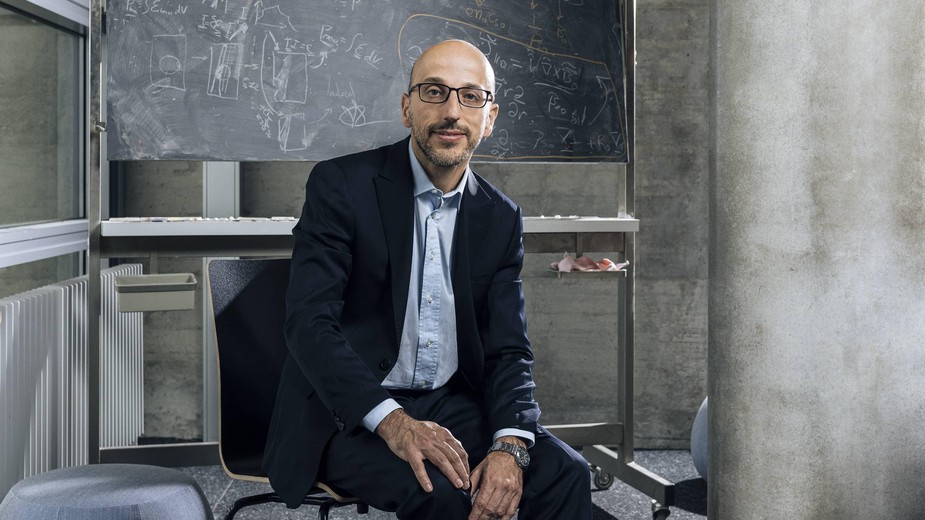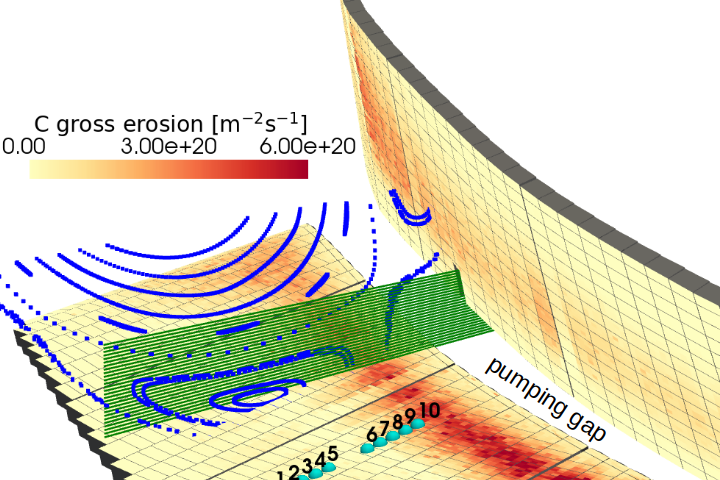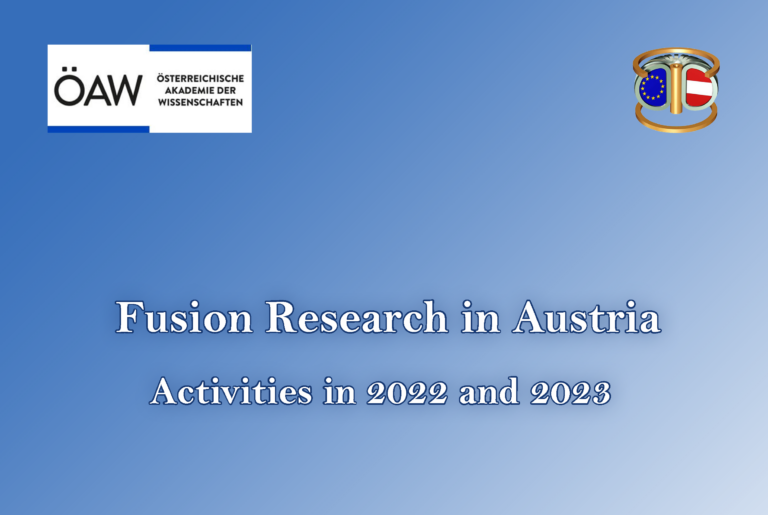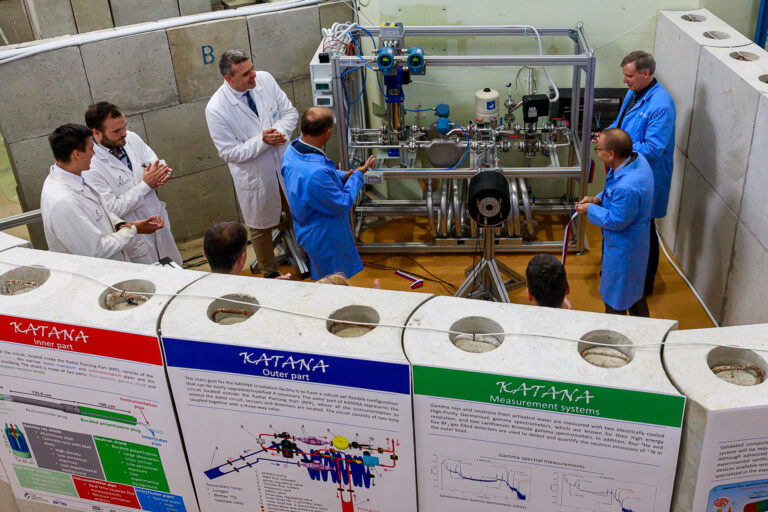Introduction:
We are pleased to announce that Paolo Ricci has been appointed as the new Director of the Swiss Plasma Center (SPC) at EPFL. Paolo succeeds Ambrogio Fasoli, who is now the Programme Manager at EUROfusion. As SPC is a crucial member of the EUROfusion consortium, this leadership change is significant for our collective efforts in advancing fusion research. Paolo’s extensive experience and dedication to excellence will undoubtedly enhance our collaborative projects. Learn more about his vision and SPC’s role in the European fusion programme in this interview.”
“I would be lying if I did not admit that it feels strange to leave the helm of the Swiss Plasma Center after many years, even though I will still be part of it. However, this feeling comes with a sense of accomplishment and pride for such a great adventure shared with so many wonderful colleagues and friends, to whom I am deeply indebted.
I am also certain that the Center is in great hands with Paolo, whose commitment to serving the community, striving for excellence, and vision will take it to the next level.
Many thanks to all past and present members of our community, and best wishes to Paolo.”
– Ambrogio Fasoli, EUROfusion Programme Manager
Article from the Swiss Plasma Center at EPFL:
Paolo Ricci, you have been appointed director of the Swiss Plasma Center (SPC). What does it mean to you?
After eighteen years at the SPC, I am very honored and proud to become the new director. I approach this new role with a lot of enthusiasm, a desire to do well, and an ambition to push the SPC even further, while also being deeply grateful for the tremendous work accomplished by my predecessors and all the members of the lab. It is with all my energy that I now serve the SPC and its 200 collaborators. It is essential for me to rely on their support and expertise to progress together.
Is team spirit important to you?
Absolutely, it’s fundamental. Beyond the infrastructure, it’s the people who make the difference. If our team members are happy and proud to work here, success will naturally follow. My priority is to ensure that everyone feels valued and excited to contribute to our common projects.
We share a common mission: to advance fusion research
– Paolo Ricci, director of the Swiss Plasma Center
Physicists, mechanics, engineers… The SPC has 200 collaborators from various backgrounds. How do you plan to unify this diversity?
Although we are all different, we share a common mission: to advance fusion research. This goal unites us and allows us to collaborate without competition. We progress together, developing our skills and thus strengthening our cohesion.
You grew up in a family linked to the automotive industry in Turin. How does this influence your approach?
Coming from a working-class background in the suburbs of Turin, I learned the value of hard work and solidarity. Although I must admit I am unable to repair a car and have great difficulty with my bike, I feel close to this spirit of community and determination. This helps me appreciate and understand the importance of each team member.
For several years, you have also been responsible for the theory chair in a center mainly focused on experimental physics around the Tokamak à Configuration Variable (TCV). What challenge does this represent for you?
It’s undeniably a stimulating challenge. I have a lot to learn, and that excites me. I can count on some of the best experts in the world in their field. At the same time, I already have extensive experience in collaboration between theory and experimentation since my arrival at the SPC, where I worked on simulations based on experiments like Torpex. I look forward to exchanging ideas with them, learning, but also contributing with my ideas. I think this can truly enrich our reflections.
New challenges identified by the European program, such as materials and “blankets”, could justify future expansion.
– Paolo Ricci, director of the Swiss Plasma Center
What is your vision for the Swiss Plasma Center?
It will follow in the footsteps of my predecessor, Ambrogio Fasoli. We have followed a successful path, with a significant increase in funding and staff over the past ten years. My priority remains the excellence and quality of our work, not necessarily increasing the workforce. However, new challenges identified by the European program, such as materials and “blankets”, could justify future expansion. Therefore, we must have the courage and audacity to embark on these without forgetting that our main strength lies in our ability to cover the entire spectrum of plasma physics, from fundamental understanding to proposing concrete solutions for future fusion reactors.
Is European collaboration important to you?
Yes, the EUROfusion program is the most comprehensive worldwide. It’s an opportunity to contribute to this ambitious project. We are perfectly aligned with its objectives and determined to play a key role in it.
What does it mean for you to lead a structure as important as the SPC within EPFL?
The connection with EPFL is crucial. We have already initiated fruitful collaborations in areas such as simulation and materials. I want to strengthen these partnerships and explore new areas like artificial intelligence. Few laboratories can benefit from such a rich academic environment of excellence since most research centers are national laboratories isolated from the university fabric. Therefore, it’s a unique opportunity for us.
My dream is for the SPC to become a must-stop for any physicist seeking excellence
– Paolo Ricci, director of the Swiss Plasma Center
The SPC also has a training mission. What is your vision on this subject?
We are fortunate to have many award-winning professors among us. Our academic status combined with our state-of-the-art infrastructure makes us a unique place for training students and postdocs. My dream is for the SPC to become a must-stop for any physicist seeking excellence. Transmitting knowledge is essential to avoid past mistakes and to train future leaders in plasma physics research.
You are also a physics professor at EPFL, and your courses are highly appreciated by students, as evidenced by the numerous awards you have received. Is teaching a passion?
Absolutely, teaching is a window to the future. Transmitting knowledge is enriching. I teach two bachelor’s courses, one of which is the first physics course students take, and their enthusiasm is a great source of motivation for me. It’s demanding work, but it gives me a lot of energy.
When do you think fusion will become a reality?
It depends on many factors, including political will and funding. Recent progress is encouraging. I think it is realistic to aim for the first operational fusion power plant by 2050. It is very clear today that we need a viable energy alternative. All avenues must be explored.

Proust Questionnaire:
- Your favorite progress?
- The one that has yet to come.
- The worst?
- The one that never happens.
- What fault inspires the most indulgence in you?
- The one made out of enthusiasm.
- Your hero in real life?
- My wife, she manages to tolerate me.
- The main trait of your character?
- Complexity, like plasmas.
- Your favorite dish?
- Raclette, clearly after pasta!
- Your best memories at the Swiss Plasma Center?
- The relaxing moments with my colleagues




